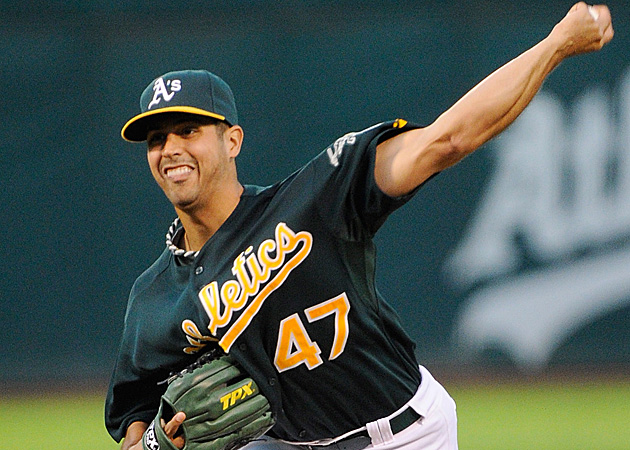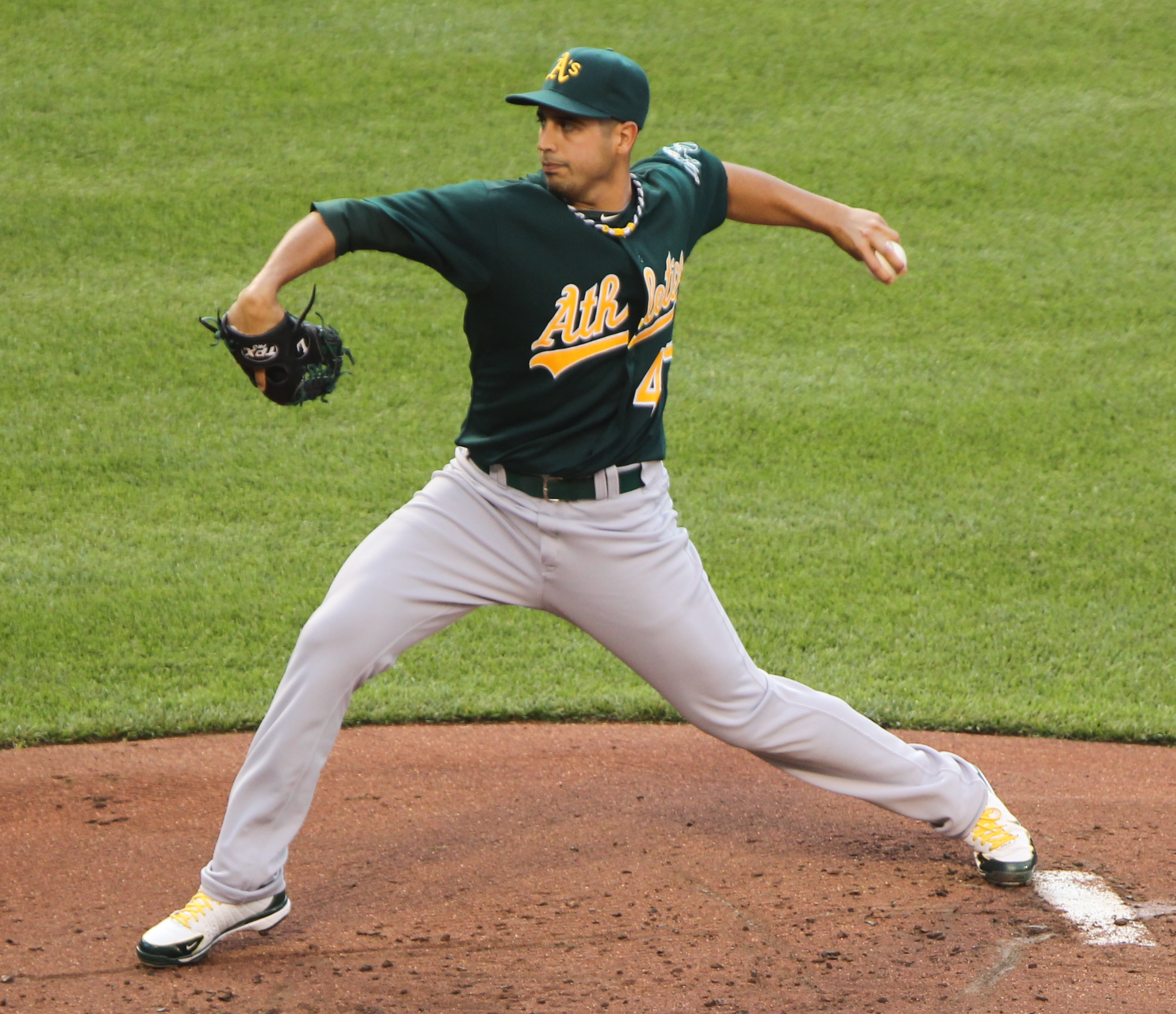It's been almost 24 hours since the Washington Nationals acquired pitcher Gio Gonzalez and fan reaction has pretty much fallen into two categories regarding the deal.
Either the team gave up way to much for a pitcher that walks way too many batters, or the 26-year-old Gonzalez will indeed help make the Nationals contenders in 2012.
But within both groups there is a common link. Many on both sides think that if the team wanted to add a top-end starter, they should have signed him as a free agent instead of trading for him.
This way, the logic goes, they could have gotten him for "nothing."
Make sense?
Let's take the case of Mark Buehrle, the former White Sox hurler who signed a four-year, $58 million deal with the Miami Marlins a couple of weeks ago.
That works out to $14.5 million per year for Buehrle, who will be 33 at the beginning of the contract and 36 when it ends in 2015.
Over that same period of time, Gonzalez will probably earn about as much in four years as Buehrle will earn in one.
In his two full years, Gonzalez has averaged a 16-10 record with a 3.17 ERA. During that same period, Buehrle went 13-11, 3.94 and hasn't won 16 games in a season since 2005.
After 12 major league seasons, Buehrle is as good as he's going to get and will probably begin to decline fairly quickly, something that happens to all pitchers at this stage in their careers. Gonzalez, though, at 26, continues to get better as he refines his game.
True, the Nationals gave up four quality prospects, but history suggests that only one or two of them will have successful careers. Popped tendons, lost release points, and 100 mph fastballs will keep some of them from reaching their potential.
By not signing Buehrle, the Nationals also saved their top pick in the upcoming amateur draft, something they would have forfeited had they signed him.

They also saved roughly $45 million which would just about cover the first two years of a potential Prince Fielder contract, or more than the amount required to sign local boy Joe Saunders, a John Lannan-esque pitcher capable of easily replacing him in the Nationals' rotation
The Nationals could then trade Lannan and receive in return a couple of good-to-decent prospects, players that would help replace the kids lost in the Gonzalez trade.
Trading for Gio Gonzalez instead of signing Mark Buehrle really didn't cost the Nationals anything. It was just a different way of accomplishing the goal that team GM Mike Rizzo said was a priority for months--adding a durable starter to the pitching staff.
The team "lost" four prospects instead of $45 million. Are each of those kids worth $11 million to the Nationals? While this might change, right now I'd have to say no.
All in all, it was a good day for the Nationals.















